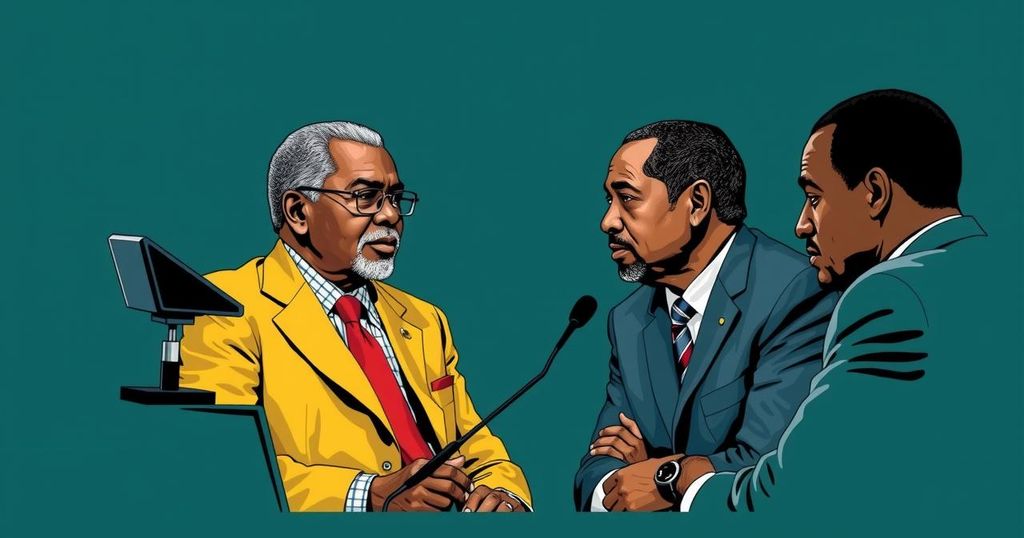DR Congo President Proposes Constitutional Changes on Term Limits

President Felix Tshisekedi of the DR Congo proposed constitutional revisions that may alter presidential term limits during a recent speech, citing the current constitution as outdated. This announcement has sparked opposition and fears of circumventing democratic principles, especially given the country’s history of authoritarian governance. Rights groups raise concerns over potential impacts on civil liberties and election integrity.
The President of the Democratic Republic of Congo, Felix Tshisekedi, proposed constitutional changes during a speech in Kisangani on October 23, including the potential alteration of presidential term limits. Tshisekedi, who had previously committed to adhering to constitutional mandates, characterized the existing constitution as “outdated” and misaligned with contemporary national circumstances. He announced plans to establish a commission to draft a new constitution by 2025, asserting that any decision regarding the removal of presidential term limits should ultimately reflect the will of the populace. Government officials, including the Minister of Media and Communication, have voiced support for constitutional revisions. The ruling party’s secretary general has urged party members to advocate for such changes among their constituents. The historical context surrounding presidential term limits in the Democratic Republic of Congo carries significant weight. The current constitution, instituted under the late President Joseph Kabila in 2006, stipulates in Article 220 that modifications regarding the number and duration of presidential terms are not permissible. However, Kabila managed to extend his rule beyond his legally mandated two terms in December 2016 through oppressive means. At that time, Tshisekedi was an opposition leader vocally challenging Kabila’s disregard for constitutional limits. In recent developments, civil society groups, rights organizations, and various political factions have criticized Tshisekedi’s proposition, expressing concern that he may intend to circumvent the established two-term limit. Tshisekedi was re-elected for a second term in December 2023 amid an election fraught with violence. Since his re-election, the government has intensified its crackdown on dissent, imposing restrictions on fundamental rights, including freedom of expression and assembly, resulting in the arbitrary detention of several politicians and human rights defenders.
The Democratic Republic of Congo has a tumultuous political landscape characterized by a history of constitutional manipulation and prolonged rule by individuals disregarding established legal frameworks. The 2006 constitution, which includes strict provisions against altering presidential term limits, was a product of Kabila’s administration. Kabila’s tenure was marked by significant human rights violations, including violence against opposition voices and civil society repression. Tshisekedi, once an advocate for constitutional adherence, now faces accusations of potentially following a similar trajectory by proposing changes that could undermine the rule of law. International human rights standards mandate that citizens should possess the right to engage in fair elections to select their leaders, a principle at risk if constitutional amendments prioritize power consolidation.
In summary, President Felix Tshisekedi of the Democratic Republic of Congo has initiated discussions regarding potential amendments to the constitution, specifically addressing presidential term limits. Despite his previous promises to uphold constitutional integrity, this proposal raises significant concerns among critics who fear it may lead to a repetition of historical patterns of authoritarian governance in the nation. Observers are urged to monitor developments closely, given the implications for democratic electoral processes and civil liberties.
Original Source: www.hrw.org







